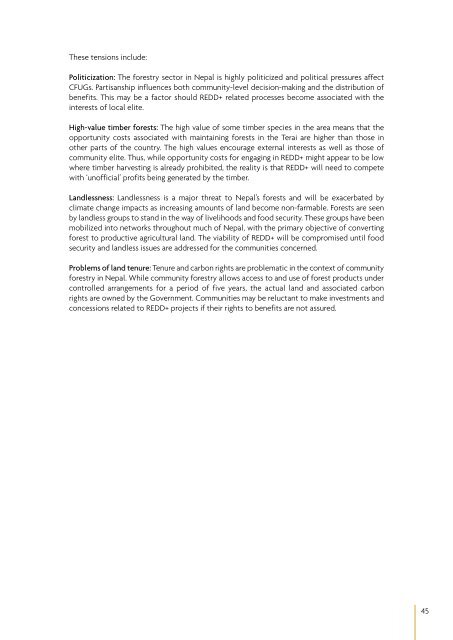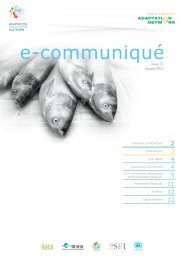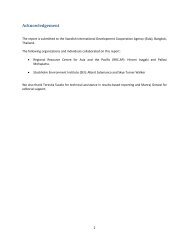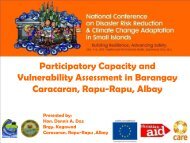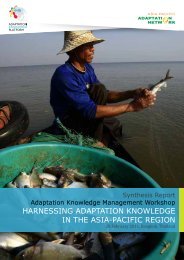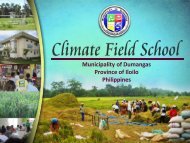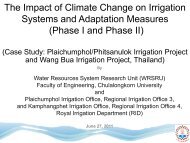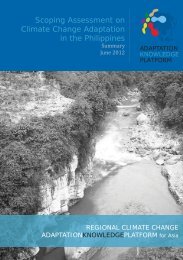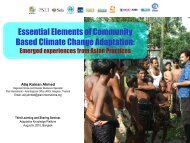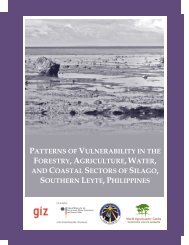Adaptation case studies.pdf - RECOFTC
Adaptation case studies.pdf - RECOFTC
Adaptation case studies.pdf - RECOFTC
You also want an ePaper? Increase the reach of your titles
YUMPU automatically turns print PDFs into web optimized ePapers that Google loves.
These tensions include:Politicization: The forestry sector in Nepal is highly politicized and political pressures affectCFUGs. Partisanship influences both community-level decision-making and the distribution ofbenefits. This may be a factor should REDD+ related processes become associated with theinterests of local elite.High-value timber forests: The high value of some timber species in the area means that theopportunity costs associated with maintaining forests in the Terai are higher than those inother parts of the country. The high values encourage external interests as well as those ofcommunity elite. Thus, while opportunity costs for engaging in REDD+ might appear to be lowwhere timber harvesting is already prohibited, the reality is that REDD+ will need to competewith ‘unofficial’ profits being generated by the timber.Landlessness: Landlessness is a major threat to Nepal’s forests and will be exacerbated byclimate change impacts as increasing amounts of land become non-farmable. Forests are seenby landless groups to stand in the way of livelihoods and food security. These groups have beenmobilized into networks throughout much of Nepal, with the primary objective of convertingforest to productive agricultural land. The viability of REDD+ will be compromised until foodsecurity and landless issues are addressed for the communities concerned.Problems of land tenure: Tenure and carbon rights are problematic in the context of communityforestry in Nepal. While community forestry allows access to and use of forest products undercontrolled arrangements for a period of five years, the actual land and associated carbonrights are owned by the Government. Communities may be reluctant to make investments andconcessions related to REDD+ projects if their rights to benefits are not assured.45


